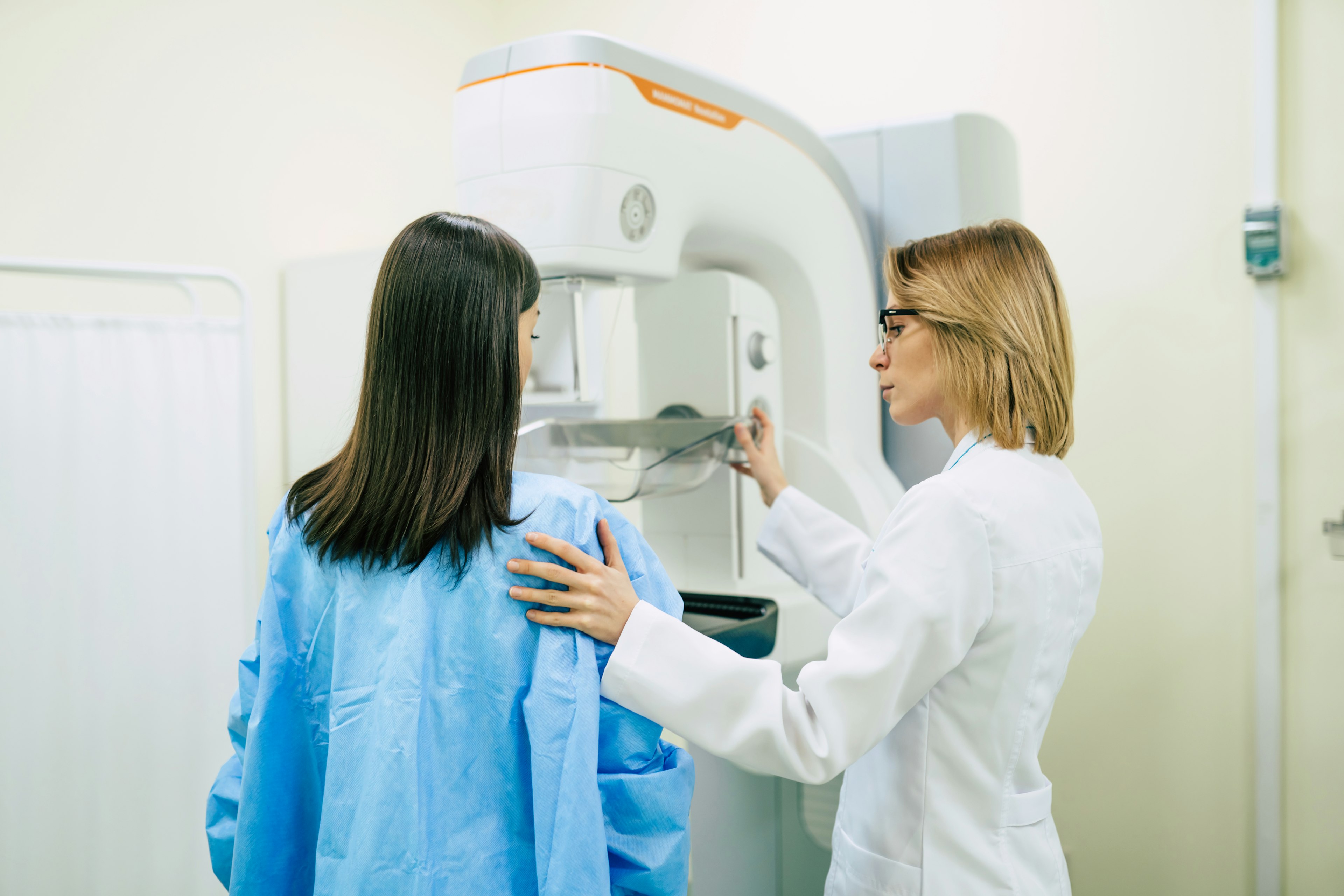Breast cancer is the most common cancer among women worldwide — and early action can save lives.
In the U.S., 1 in 8 women will be diagnosed with breast cancer during her lifetime. While October is Breast Cancer Awareness Month, awareness and proactive care should be year-round.
At CLS Health, we believe in the power of comprehensive care — where primary care providers, OB/GYNs, radiologists, oncologists, and plastic surgeons work together to support patients at every stage, from prevention to survivorship.
This guide breaks down what every woman (and those who love them) should know about breast cancer — and how you can take proactive steps toward early detection and prevention.
Understanding Breast Cancer: Causes, Risk Factors & Prevention
What Causes Breast Cancer?
Breast cancer begins when abnormal cells in the breast grow out of control. These mutations can form tumors, which may be benign (non-cancerous) or malignant (cancerous). The exact cause of these cell mutations isn’t always known, but several risk factors can increase your likelihood of developing breast cancer.
Breast Cancer Risk Factors
- Gender & Age – Breast cancer is significantly more common in women, especially those over 50.
- Hormonal History – Early menstruation (before age 12) or late menopause (after 55) increases risk.
- Dense Breast Tissue – Makes tumors harder to detect and raises overall risk.
- Family or Personal History – Prior breast cancer or family history significantly elevates risk.
Does Family History or Genetics (BRCA1/BRCA2) Increase My Risk?
Yes. Mutations in the BRCA1 or BRCA2 genes are strongly linked to inherited breast cancer.
- You may benefit from genetic testing if:
- You have multiple relatives with breast or ovarian cancer.
- You were diagnosed under age 50.
- A male in your family had breast cancer.
Genetic counseling can help assess your risk and develop a tailored prevention plan.
Can Lifestyle Changes Help Prevent Breast Cancer?
While some risk factors are out of your control, others are manageable with healthy lifestyle habits:
- Maintain a healthy weight (diet and weight loss medications)
- Exercise regularly (150+ minutes per week)
- Limit alcohol (no more than 1 drink/day)
- Avoid smoking
- Breastfeed, if possible
- Discuss HRT (Hormone Replacement Therapy) risks with your doctor
Talk to your doctor about your personal risk factors and create a prevention plan that’s right for you.
Early Detection & Screening: What Every Woman Should Know
When Should I Start Getting Mammograms?
Most women should begin annual mammograms at age 40, but if you have a higher risk (family history, dense breasts, or genetic mutations), your doctor may recommend starting earlier.
How Often Should I Get Screened?
- Average risk: Every 1–2 years starting at age 40
- High risk: Annually or more frequently, with additional imaging like MRI
Are Mammograms Safe?
- Yes, mammograms are safe and quick. They use low-dose X-rays and typically involve only minimal, brief discomfort.
- The benefits of regular screening far outweigh the small risks or temporary discomfort.
- While CLS Health does not perform mammograms in-office, we offer clinical breast exams, in-house imaging (breast ultrasound and MRI), and prompt mammography referrals to trusted imaging centers.
Signs & Symptoms of Breast Cancer
Early breast cancer often shows no symptoms, which is why screening is so vital. Still, you should watch for:
- A lump or thickening in the breast or underarm
- Changes in breast shape, size, or skin texture
- Nipple inversion or discharge
- Redness, dimpling, or peeling skin
Provider Tip: "Know your normal." Perform regular self-breast exams and report any changes to your doctor.
The Collaborative Role of Medical Specialties in Breast Cancer Care
At CLS Health, breast cancer care is a true team effort. Our integrated network of medical specialists works together to deliver seamless, patient-centered care. From your first screening to treatment and reconstruction, we coordinate every step to ensure you receive timely, comprehensive support tailored to your unique needs.
Primary Care/Family Medicine: Your First Line of Defense
- Your primary care provider ensures you stay on track with annual wellness exams.
- They assess your risk profile and refer you for mammograms or genetic testing if needed.
OB/GYN & Women’s Health: Champions of Prevention
- Your OB/GYN performs clinical breast exams and discusses hormone health, birth control, and menopause therapy — all of which affect risk.
- They also guide breast cancer screening schedules and coordinate care with imaging and oncology.
Medical Imaging: Precision in Early Detection
Radiologists play a crucial role in early diagnosis through:
- 3D mammography
- Ultrasound (especially for dense breasts)
- MRI (for high-risk patients)
Imaging experts also interpret results and recommend next steps, such as biopsies or follow-ups.
Oncology: Treatment, Education & Survivorship
Medical oncologists manage treatment plans, including:
- Chemotherapy
- Hormonal therapy
- Radiation therapy
- Clinical trials
They also provide ongoing monitoring, survivorship care, and emotional support.
Plastic Surgery: Rebuilding Confidence Post-Treatment
For patients undergoing mastectomy or lumpectomy, our plastic surgeons offer:
- Breast reconstruction options (implants or tissue-based)
- Timing guidance (immediate vs. delayed reconstruction)
- Support extends to both physical healing and emotional well-being.
At CLS Health, your care is never isolated — it’s integrated, compassionate, and comprehensive.
Take Charge of Your Breast Health Today with a Wellness Visit in Houston
Early detection can save lives, and we’re committed to being your trusted partner every step of the way. Whether you’re due for a routine mammogram, want to better understand your genetic risk, or are exploring breast reconstruction options, our compassionate and collaborative women’s health team is here to provide the care and clarity you need.
From primary care and OB/GYN services to advanced imaging, oncology, and plastic surgery, our specialists at CLS Health work together to deliver personalized care tailored to your health goals. Schedule your wellness visit today, don’t wait to prioritize your breast health.





